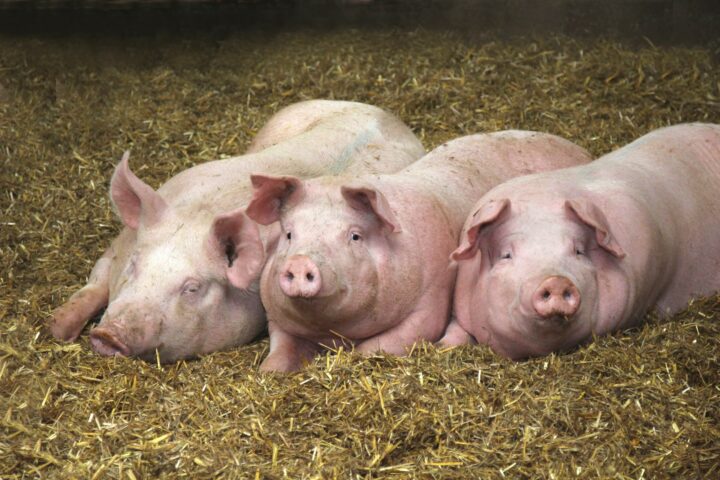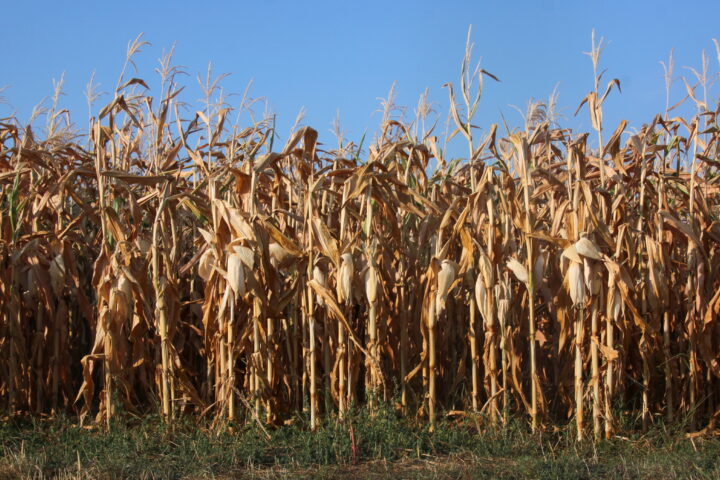
Genome research for sustainable crop protection
A research consortium of industry and public researchers in England has published a genome database of the most common insect pests in the United Kingdom. The open-source database has been set up to help with the development of targeted and environmentally friendly pesticides.
Wednesday, February 22, 2023
As reported by the AgroPages portal, the database contains the genomes of 19 insect species, including wireworm, cabbage stem flea beetle, and pollen beetle. All of the pests included are notorious for infesting vital crops worldwide such as oilseeds, vegetables, cereals, fruits, beans, sugar, and cotton. By publishing the data, researchers hope to accelerate the development of new pesticides. The genomes will also be an important resource for the broader entomological community concerned with insect evolution, physiology, biochemistry, and ecology.
More targeted and more environmentally friendly
The hope is that the information about the genetic material of the pests will enable scientists to find active substances that are more targeted and more environmentally friendly and to reduce the development of pest resistance. By assembling these detailed genome ‘maps’ of annotated sequences, researchers can start to develop the next generation of pesticides, ones that very specifically target the pest while leaving other species unharmed. The open-source database was made possible by the collaboration of researchers from Rothamsted Research and the companies Syngenta and Bayer. The four-year Pest Genome Initiative (PGI) involved first sequencing the genomes and then assembling them into individual chromosomes before adding information to the genome map about what the individual genes code for.
The problem of resistance
Over time, pests develop resistance when the same pesticides are used repeatedly, meaning that the pests become immune to the active substance. It is much like the harmful antibiotic resistance we know from human medicine. Protecting crops then becomes even more difficult for farmers, who have to switch to alternatives. With fewer and fewer pesticides on the market, resistance will develop more quickly. This scenario represents a very real threat for Switzerland, where numerous pesticides are disappearing from the market with hardly any new ones being approved. The worst-case scenario is that, at some point, there will be no suitable active substance available. Preventing the development of resistance is one of the essential tasks of modern crop protection research. The genome information helps researchers to develop substances that are less likely to lead to the development of resistance in the target organism.
Pesticides are still important
Linda Field, professor at Rothamsted Research and one of the research leaders, says: “Up to one-fifth of all crops worldwide are currently lost to pests, and this is expected to rise to 25 percent due to climate change. While non-chemical control methods can have some success in reducing crop losses, pesticides remain a necessary weapon in our fight against devastating crop losses and this will remain the case for the foreseeable future.”
Sources
Kindly note:
We, a non-native editorial team value clear and faultless communication. At times we have to prioritize speed over perfection, utilizing tools, that are still learning.
We are deepL sorry for any observed stylistic or spelling errors.
Related articles

What’s Really in Your Shopping Basket
Genetic engineering in our shopping basket? Yes – and much more often than we think. Whether it’s pasta, bread or vegetables: many of the everyday products we consume come from mutation breeding, which involves altering the genome and is considered safe. It’s high time to debunk the common myths.

Genomic breeding methods are not given a chance to prove themselves
Modern genomic breeding methods are legally classified as genetic engineering – and are therefore still effectively blocked. Yet we have been eating genetically modified plants for decades, just under the label of “classical mutagenesis.” The new, more precise techniques are regulated more strictly than the old ones, even though they are considered safer from a scientific perspective. A contradiction that urgently needs to be corrected. The EU is setting a good example.

No Pig Business: Why Testicle-Free Boars Are a Clear Win for Animal Welfare
New breeding methods are opening up new possibilities in both plant and animal breeding. They allow targeted genetic changes that can make animals more resilient, adaptable, and healthier.

Stagnation instead of progress: Switzerland risks falling behind in new breeding techniques
An overview article in Schweizer Bauer shows how much the new breeding methods are preoccupying farming circles. Once the consultation process on the federal law has been completed, a bill is expected – then it will become clear whether there is actually the political will to approve it.

